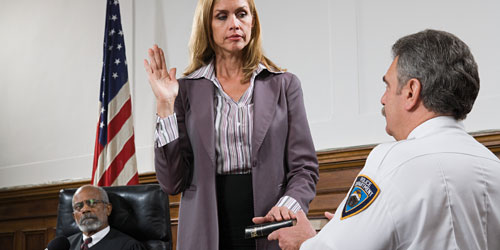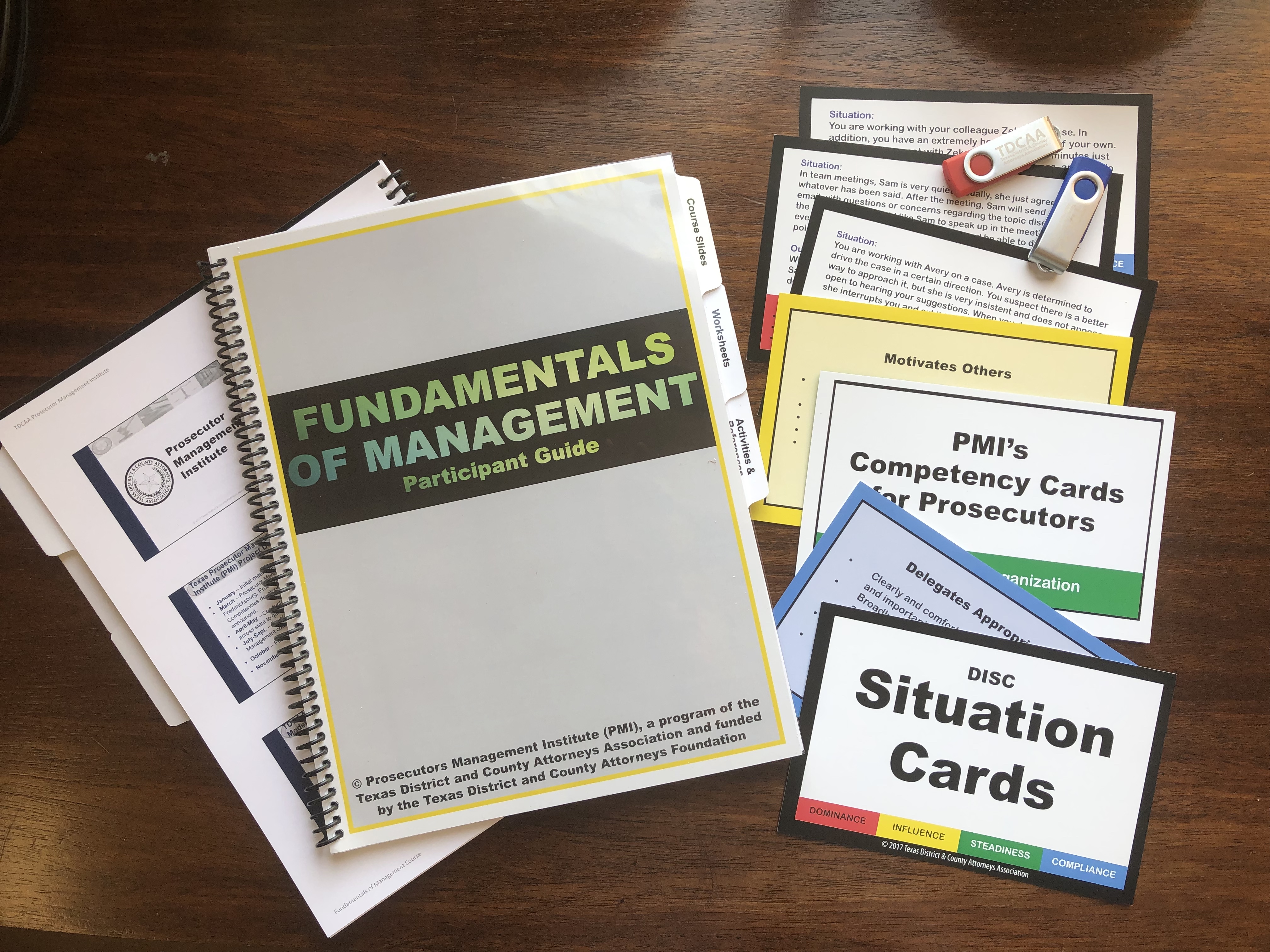We are sending this week’s update a day early for those offices observing Good Friday tomorrow. Legislators are taking a four-day break and will return to business in earnest on Tuesday. Then the real work begins, as you will see from the long list of committee postings (below) addressing bail reform, drug penalties, the death penalty, DWI offenses, accelerated prison releases, and just for good measure, another bill banning so-called “taxpayer-funded lobbying.”
Drivers, start your engines!
Killing the messenger?
The Senate Local Government Committee will hear SB 10 by Bettencourt (R-Houston), a bill that would bar city and county officials’ use of local funds to “directly or indirectly influence or attempt to influence” legislation in Austin. Like HB 749 by Middleton (R-Wallisville), which was mostly focused on advocacy by lobbyists and associations, SB 10 could be read to bar county payments to associations like TDCAA because we follow and report to you on what the legislature is doing, which in other contexts has been held to be a form of “indirectly” attempting to influence legislation. But SB 10 also takes direct aim at local governmental officials and their employees by making it more difficult for them come to Austin to advocate for or against policies that impact their jobs. Your jobs. It will be up to you to convince them that your input is worth it.
Riding the news cycle
Policing reform’s high profile this session won’t be ending anytime soon. Not only have several Texas peace officers been shot since the session began—including one fatally—but former Minneapolis PD officer Derek Chauvin is currently on trial for the death of George Floyd, whose namesake bill has already been heard in a House committee this session. Regardless of the outcome of that trial, the jury verdict is likely to add fuel to that particular policy fire and become a lens through which many bills are viewed for the rest of the session.
Bail reform
Earlier this morning the Senate Jurisprudence Committee passed a committee substitute version of SB 21 by Huffman (R-Houston), which will be the Senate’s “bail bond reform” bill this session. An advanced copy of the new version can be read here. In summary, it:
- Limits the availability of personal bonds for certain repeat offenders
- Requires bail in a new case to be set by a court before in which a defendant is already out on bail
- Requires a magistrate setting bail to take additional factors—including criminal history, violent behavior, and citizenship status—into consideration
- Requires more judicial training related to setting bail
- Limits the activities of “charitable bail organizations”
- Collects data on bail bonds issued, including failures to appear and new offenses committed while released on bail
The bill will now head to the full Senate for consideration.
Meanwhile, on Tuesday the House Criminal Jurisprudence Committee will take up its version of bail bond reform in HB 20 by Murr (R-Junction). The bulk of HB 20 tracks past House attempts at bail reform by creating a statutory default for release on “the least restrictive conditions and minimum amount of bail” necessary to encourage the offender’s appearance and protect public safety. The bill would try to accomplish this through the use of a statewide pretrial risk assessment tool and a preference for release on personal bonds in non-violent cases. However, one important difference from previous versions of this bill is the removal of language allowing a judge to deny bail and then requiring evidentiary hearings at which the State would have to prove certain things by clear and convincing evidence to confirm that denial. Instead, Section 2 of HB 20 reverses that process and allows a judge to deny bail in certain violent or sex crimes unless the court determines by clear and convincing evidence that it would be safe to release that offender, and there is no requirement of a live evidentiary hearing to do that. Note, however, that this new approach is contingent upon the passage of HJR 4 by Kacal (R-College Station), which would amend the state constitution to allow—or in some cases, require—judges to deny bail in those cases. The passage of such a resolution is never a sure thing, but this may be a welcome change for those of you who objected to the creation of additional bail hearings in past sessions due to a lack of resources or ability to see them through. Again, these measures will be considered in committee on Tuesday, so if you have thoughts about them, that is your opportunity to be heard.
Bills and bills and yet more bills
We thought we’d use this temporary holiday pause in the session to examine where things stand on the overall bill front.
We are currently tracking 1,623 (23%) of 7,120 filed bills and resolutions. That is the most bills we’ve ever tracked in a single session, something at least partly attributable to the high profile of policing reform and pandemic-related issues this time around. Below are additional details about some of the 40+ bill tracking categories we maintain, as well as notes on some bills in those categories that are on the move. (To learn more about any of these bills, go to https://capitol.texas.gov and enter the bill number in the appropriate search box.)
Bail/pre-trial release: 45 bills, including HB 1352 by Crockett (accelerating jail release under Art. 17.151) and the bills mentioned in the prior section.
Capital punishment: 36 bills, including HB 252 by Moody (jury instruction on unanimous votes).
Civil asset forfeiture: 17 bills, including HB 1441 by Schaefer (flip and increase the burden on the innocent owner defense).
Drugs: 85 bills, including HB 1086 by Moody (reducing some felony drug crimes to misdemeanors) and SB 768 by Huffman (fentanyl enhancements).
DWI: 30 bills, including HB 2733 by Tinderholt (DPS database of DWI bond/probation conditions and DL suspensions).
Family violence: 50 bills, including SB 343 by Kolkhorst (FV bond conditions in TCIC).
Grand jury: Nine bills.
Guns: 147 bills.
Human trafficking: 45 bills, including HB 402 by Hernandez (forfeiture proceeds to help trafficking victims) and HB 1540 by S. Thompson (omnibus trafficking bill).
Juveniles: 56 bills, including HB 488 by Wu (juvenile clothing and restraints) and HB 1193 by Wu (sealing of certain determinate sentence records).
Policing and officer duties: 222 bills, including HB 8 by Pacheco (hiring practices by law enforcement agencies), HB 88 by S. Thompson (George Floyd Act), HB 766 by Harless (TCIC entry of bond conditions), SB 23 by Huffman (voter approval before defunding law enforcement), and SB 24 by Huffman (hiring practices by law enforcement agencies).
Punishment enhancement: 116 bills, including HB 376 by Smith (improper sexual activity with person in custody), SB 516 by Huffman (ATM criminal mischief), and SB 768 by Huffman (fentanyl—and yes, some bills are in multiple tracks).
Punishment reduction/decriminalization: 152 bills, including HB 686 by Moody (retroactive accelerated parole consideration for youthful violent offenders).
New crimes: 264 bills, including several election fraud and abortion-related bills.
Sex crimes: 88 bills, including HB 1172 by Howard (rights of sexual assault survivors).
Our three key tracks are:
Code of Criminal Procedure: 457 bills, which includes several bills already mentioned above plus bills such as HB 39 (protective orders) and HB 2631 (limitations on jailhouse informants).
Penal Code: 334 bills, including several bills mentioned above.
Bills to watch: 130 bills, including HB 6 (election fraud), HB 749 by Middleton (ban on local government advocacy), HB 1717 by S. Thompson (Hillman v. Nueces Co. proposal), HB 2335 by Middleton (waiving prosecutorial immunity), SB 7 (election fraud), SB 23 by Huffman (limitation on defunding policing agencies), and SB 252 by Bettencourt (independent OAG prosecution of public corruption crimes).
To view all the tracked bills that would amend the Code of Criminal Procedure, the Penal Code, or fall into our general “Bills to Watch” category, use the links on the right-hand side of our Legislative page. And as always, if you ever have questions about any piece of legislation, please contact Shannon.
Floor action
The Senate passed SB 343 by Kolkhorst (FV bond conditions in TCIC), SB 768 by Huffman (fentanyl punishments), and a half-dozen abortion-related bills—SBs 8, 9, 394, 1173, and 1647—some of which carry potential criminal sanctions. The House passed HB 567 by Frank (restrictions on terminating parental rights). Now those bills move on to the other chamber.
Upcoming floor calendars
Bills calendared for debate on the House floor can be found here; check back for updates as needed. Among the tracked bills coming up on Wednesday are HB 686 by Moody (“Second Look” early parole for violent youthful offenders) and HB 167 by Ortega (TROs for nuisance abatement).
Bills eligible for possible debate on the Senate floor are available here; the list changes daily so check as needed. Among the tracked bills that might be taken up on Tuesday are SB 7 by Hughes (election fraud) and SB 24 by Huffman (hiring of peace officers).
Committee news
House committees approved HB 530 by Patterson (election judges carrying handguns at polling places), HB 873 by Collier (dog tethering), HB 1071 by Harris (therapy dogs in court), HB 1172 by Howard (rights of sexual assault survivors), HB 1374 by Minjarez (sexual assault counselor privilege), HB 2733 by Tinderholt (DWI database), and HB 3295 by S. Thompson (DTPA actions against massage parlors by local prosecutors).
Senate Committees voted out SB 21 by Huffman (bail bond reform), SB 24 by Huffman (hiring peace officers), SB 111 by West (law enforcement discovery compliance), and SB 476 by Nelson (mandatory sexual assault review teams).
Intermission
Hey, that’s a lot of information to absorb, isn’t it? We get it. Why not take a break and clear your head? There’s a lot more to pass along, so this is a good mid-way point to pause before diving in again. (And just remember—if you think this is tough to read, imagine what it must be like trying to distill, summarize, and share all this crap! The struggle is real.)
The long Easter break will totally change next week’s usual committee hearing schedule. Below are the relevant postings so far, but we’ll probably have to update this again with information on hearings later in the week. We apologize in advance for stuffing your inbox.
For a full agenda of all bills to be heard at each meeting, please click the link in the committee’s name below; the text of each individual bill will be accessible on that notice by clicking the bill number.
Monday, April 5 (no business)
Tuesday, April 6
House Judiciary & Civil Jurisprudence – 8:00 a.m., E2.026
HB 2144 by Harris creating a new tort of public nuisance
HB 3334 by Turner creating a statewide criminal justice sentencing database
HB 3774 by Leach, the omnibus court creation and judicial administration bill
HB 4422 by T. King authorizing county legal counsel to request AG opinions
Senate Jurisprudence – 9:00 a.m., Room E1.016
SB 295 by Perry creating a testimonial privilege for certain sexual assault counselors
SB 312 by Huffman increasing the punishment for improper sexual activity with a person in custody
SB 335 by Johnson relating to toxicological evidence in intoxication cases
SB 495 by Kolkhorst granting crime victims a right to request bond increases
SB 1054 by Huffman creating a condition of supervision relating to searches
SB 1055 by Huffman creating an offense for injuring pedestrians in a crosswalk
SB 1056 by Huffman creating a “SWATting” offense
Senate Local Government – 11:00 a.m. or upon adj., 2E.20 (Betty King Committee Room)
SB 10 by Bettencourt barring the use of local funds for legislative work
SB 1879 by Bettencourt relating to the reporting of lobbying activities by certain political subdivisions
House Criminal Jurisprudence – 1:00 p.m. or upon final adjournment, Room E2.012
HJR 4 by Kacal proposing a constitutional amendment to deny bail in certain cases
HB 20 by Murr, the Texas Judicial Council version of bail bond reform
HB 99 by Toth reducing the penalty for possession of marijuana
HB 169 by S. Thompson reducing the penalties for possessing certain controlled substances
HB 198 by M. Gonzalez extending the scope of the “Romeo and Juliet” defense
HB 439 by Canales reducing the penalty for possession of marijuana concentrate
HB 441 by Zweiner reducing the penalty for possession of marijuana
HB 498 by Wu reducing the penalty for the possession of marijuana
HB 688 by Dutton exempting certain co-conspirators from the death penalty
HB 818 by Cole reducing the penalty for the possession of marijuana
HB 834 by S. Thompson requiring corroboration of undercover peace officers
HB 854 by Burns exemption LTC holders from certain weapons laws
HB 921 by White relating to release on bail
HB 955 by Dutton requiring bond for parolees who bond out on new offenses
HB 956 by Dutton allowing long knives in bars, churches, and amusement parks
HB 1005 by Leman imposing conditions of release on certain bail bonds
HB 1178 by Crockett removing the penalty for possession of drug paraphernalia
HB 1340 by Leach exempting certain co-conspirators from the death penalty
HB 1609 by Crockett reducing the penalty for possession of marijuana
HB 2077 by Reynolds relating to bail and other pretrial proceedings
HB 2327 by Frullo increasing penalties for boating while intoxicated with child passenger
HB 2505 by Smith creating an offense of boating while intoxicated with child passenger
HB 2593 by Moody reducing penalties for certain consumable marijuana products
HB 2684 by Canales expanding expunctions and non-disclosures
HB 2781 by A. Johnson relating to the punishment for mass shootings
HB 4136 by Collier expanding non-disclosures
Wednesday, April 7
House Corrections – 8:00 a.m., E2.026
HJR 10 by S. Thompson and HB 137 by S. Thompson authorizing courts to commute sentences after parole
HB 721 by Wilson limiting mandatory supervision release of someone in a county jail
HB 841 by Moody requiring parole board members to meet in person on capital cases
HB 953 by Allen mandating the award of time credits for state jail felony offenders
HB 1805 by Moody retroactively awarding good conduct time to certain violent offenders
HB 1894 by White recommending inmates for clemency
HB 2177 by Moody retroactively accelerating parole eligibility for certain violent offenders
HB 2341 by Crockett retroactively accelerating parole eligibility for certain violent offenders
HB 3598 by Leach mandating a minimum confinement for intoxication manslaughter
HB 4212 by Moody relating to defendants with mental illness or intellectual disability
Thursday, April 8
House Homeland Security & Public Safety – 10:30 a.m. or upon adj., E2.030
HB 558 by White relating to blood draws for certain intoxication offenses
HB 832 by S. Thompson changing peace officer’s duties
HB 833 by S. Thompson changing defenses for officers’ use of force and mandating policies
HB 1757 by Krause relating to recordings by and of peace officers while on duty
HB 1838 by M. Gonzalez to limit information in street gang databases
HB 2147 by Allen reducing the punishment for repeated DWLI offenses
HB 2366 by Buckley increasing penalties for protest-related conduct that injures officers
HB 2706 by Howard relating to sexual assault examinations
HB 2746 by Ellzey increasing the punishment for improper use of laser pointers
HB 3413 by Murr relating to occupational driver’s licenses
HB 3712 by E. Thompson relating to the training and hiring of peace officers
( … plus eight different gun-related bills; click on the link above for more details)
COVID and the capitol
For those coming to the legislature in the remaining weeks of the session, remember that Senate committee rooms require proof you are negative for COVID-19 for entry or to provide testimony. You can obtain that proof in the M*A*S*H tents outside the north doors of the capitol either by submitting to a free rapid test or by presenting a COVID-19 vaccine card and matching ID. Don’t forget to bring that proof if you have it, and please factor that additional time into your visits.
Scattershooting
Here are some articles we read this week that you might find interesting:
- “Analysis: The fight over local control turns to representation—and lobbyists” (The Texas Tribune)
- “After crime plummeted in 2020, Baltimore will stop drug, sex prosecutions” (The Washington Post)
- “High anxiety over federal weed loophole” (Politico)
- “Texas prisons stopped in-person visits and limited mail. Drugs got in anyway.” (The Texas Tribune)
- “Many Capitol rioters unlikely to serve jail time” (Politico)
Quotes of the Week
“This is when things get really fun at the Capitol. This is when the rubber meets the road, right?”
—House Speaker Dade Phelan (R-Beaumont), quoted in an article about the current phase of the session.
“I do not know yet what to make of the allegations against Deshaun Watson. I do know this: the legal matchup between attorneys Rusty Hardin and Tony Buzbee will be far more interesting than any game the Texans play next fall.”
—Tweet by Ryan Autullo, Austin American-Statesman reporter, in reference to the score and more of massage therapists who are suing the Houston Texans quarterback for alleged untoward behavior.
“Well I got to testify and then there was a guy who snorted a truckful of coke, ranted for several minutes, and closed with ‘I don’t know what’s in the text of the bill!!! but from what I’ve heard, I like it!!!!!!’.”
—Tweet by Emily Eby, a voting rights lawyer who live-tweeted a Senate State Affairs hearing on election fraud last week, providing what may be one of the best descriptions of public testimony at the Texas legislature that we’ve ever read.
###



